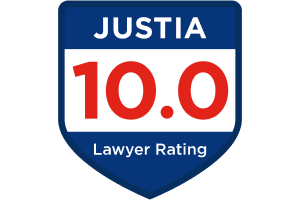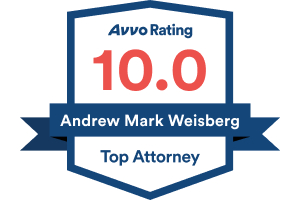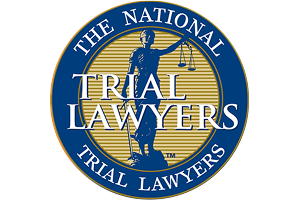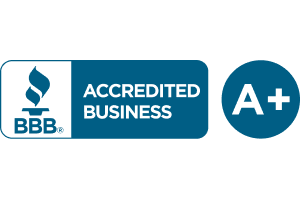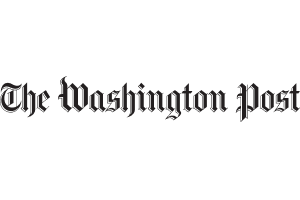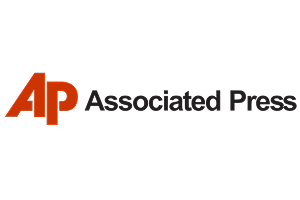Former Cook County Felony Prosecutor
White Collar Crimes
Facing White Collar Crime Charges in Chicago? Attorney Andrew M. Weisberg Can Help
White-collar crimes are non-violent, financially motivated offenses typically committed by professionals or individuals in positions of trust. These crimes can range from fraud and embezzlement to identity theft and bribery. Although they lack the violent nature of other criminal offenses, white-collar crimes are taken very seriously in Illinois. Convictions can lead to severe penalties, including significant fines, long prison sentences, and a permanent criminal record that can damage your career and reputation.
If you or a loved one is facing white-collar crime charges in Chicago or the surrounding areas, it’s crucial to seek the assistance of a skilled and experienced attorney. Andrew M. Weisberg is a seasoned criminal defense lawyer who specializes in defending clients against white-collar crime charges in Illinois. With a deep understanding of state and federal laws, Mr. Weisberg is prepared to provide a robust defense and help you navigate the complex legal landscape.
Understanding White Collar Crimes Under Illinois Law
White-collar crimes encompass a broad range of illegal activities, all of which are motivated by financial gain. These crimes are often complex and require a thorough understanding of business practices, financial transactions, and legal regulations. In Illinois, white-collar crimes are prosecuted under various state and federal statutes, and the severity of the charges often depends on the amount of financial loss, the number of victims, and the defendant’s criminal history.
Types of White Collar Crimes in Illinois
Here are some of the most common types of white-collar crimes that are prosecuted in Illinois:
1. Fraud
Fraud is one of the most prevalent white-collar crimes and involves the deliberate deception of another party for financial gain. There are many forms of fraud under Illinois law, including:
- Wire Fraud (720 ILCS 5/17-24): Involves the use of telecommunications or the internet to commit fraud. This can include fraudulent emails, phone calls, or online transactions intended to deceive others and gain financial benefits.
- Mail Fraud (720 ILCS 5/17-24): Similar to wire fraud, mail fraud involves using postal services to carry out fraudulent schemes.
- Insurance Fraud (720 ILCS 5/46-1): Involves filing false insurance claims to receive payment that is not deserved. This can include staged accidents, exaggerated claims, or completely fabricated losses.
Penalties for fraud offenses vary depending on the amount of money involved, but they can include lengthy prison sentences, substantial fines, and restitution to the victims.
2. Embezzlement
Embezzlement occurs when a person entrusted with someone else’s money or property fraudulently takes that money or property for personal use. This crime often involves employees, accountants, or executives who have access to company funds or assets. Under Illinois law:
- Theft by Deception (720 ILCS 5/16-1): Embezzlement is typically prosecuted as theft by deception, and penalties depend on the amount of money or property embezzled.
- Less than $500: Class A misdemeanor (up to 1 year in jail).
- $500 to $10,000: Class 3 felony (2 to 5 years in prison).
- Over $100,000: Class 1 felony (4 to 15 years in prison).
Embezzlement can also lead to civil liability, where the embezzler is sued by the victim to recover the stolen funds.
3. Identity Theft
Identity theft involves using someone else’s personal information, such as Social Security numbers, credit card numbers, or bank account details, without their permission to commit fraud or other crimes. In Illinois, identity theft is a serious offense under:
- Identity Theft (720 ILCS 5/16-30): Depending on the value of the theft and the harm caused, penalties range from a Class 4 felony (1 to 3 years in prison) to a Class X felony (6 to 30 years in prison).
Identity theft can cause significant harm to victims, including financial loss and damage to their credit. As a result, prosecutors aggressively pursue these cases.
4. Bribery and Corruption
Bribery involves offering, giving, receiving, or soliciting something of value to influence the actions of a public official or other persons in positions of authority. Corruption can include a wide range of unethical or illegal acts by government officials, corporate executives, or others in positions of power. In Illinois:
- Bribery (720 ILCS 5/33-1): This offense is a Class 2 felony, punishable by 3 to 7 years in prison and fines up to $25,000.
- Official Misconduct (720 ILCS 5/33-3): This charge is applied to public officials who abuse their office for personal gain. Depending on the specifics, penalties can range from misdemeanors to felonies, with corresponding fines and prison sentences.
Bribery and corruption charges can have far-reaching consequences, including the loss of professional licenses and the inability to hold public office.
5. Money Laundering
Money laundering is the process of making illegally obtained money appear legal by passing it through a complex sequence of banking transfers or commercial transactions. It is often associated with organized crime, drug trafficking, or terrorism. In Illinois:
- Money Laundering (720 ILCS 5/29B-1): Depending on the amount laundered, penalties can range from a Class 3 felony (2 to 5 years in prison) to a Class 1 felony (4 to 15 years in prison).
Money laundering charges are often prosecuted alongside other serious criminal offenses, leading to severe cumulative penalties.
6. Tax Evasion
Tax evasion involves the illegal avoidance of paying taxes owed to the government. This can include underreporting income, inflating deductions, or hiding money in offshore accounts. Under Illinois law:
- Tax Evasion (35 ILCS 120/13): Tax evasion is a felony offense, with penalties that can include up to 7 years in prison, substantial fines, and the payment of back taxes with interest and penalties.
The IRS and Illinois Department of Revenue take tax evasion seriously, often pursuing both criminal charges and civil penalties.
Consequences of a White Collar Crime Conviction
Convictions for white-collar crimes can have devastating effects on your life. Beyond the immediate legal penalties, such as fines and prison time, a conviction can lead to:
- Loss of Employment: A white-collar crime conviction can lead to immediate job loss, particularly if the offense is related to your professional duties.
- Difficulty Finding Future Employment: Many employers are hesitant to hire individuals with a criminal record, especially for positions that involve trust, responsibility, or access to financial resources.
- Reputation Damage: A conviction for a white-collar crime can severely damage your personal and professional reputation, leading to social isolation and loss of professional connections.
- Financial Consequences: In addition to fines, you may be required to pay restitution to victims, leading to significant financial strain.
- Loss of Professional Licenses: Certain professions, such as law, accounting, and healthcare, may revoke your professional license following a conviction, making it difficult to continue in your chosen career.
How Attorney Andrew M. Weisberg Can Help
When facing white-collar crime charges, it’s crucial to have a knowledgeable and experienced defense attorney by your side. Andrew M. Weisberg is a seasoned Chicago criminal defense lawyer who understands the complexities of white-collar crimes. He has a proven track record of successfully defending clients against a wide range of charges.
What to Expect During Your Free Consultation
During your free consultation with Andrew M. Weisberg, you can expect:
- Comprehensive Case Evaluation: Mr. Weisberg will review the details of your case, including the evidence against you, to develop the best defense strategy.
- Clear Explanation of Your Rights: You will be informed of your legal rights and the possible consequences of your charges.
- Strategic Defense Planning: Mr. Weisberg will craft a defense strategy tailored to your specific situation, aiming to reduce or dismiss the charges.
- Aggressive Representation: If you retain Mr. Weisberg’s services, he will vigorously defend your rights in court and work tirelessly to achieve the best possible outcome for your case.
Contact Andrew M. Weisberg Today
If you or a loved one has been charged with a white-collar crime in Chicago or the surrounding areas, do not wait to seek legal representation. Contact Chicago criminal defense attorney Andrew M. Weisberg today to schedule a free consultation. Mr. Weisberg is committed to providing his clients with the best possible defense and is available to take your call 24/7.
To reach Mr. Weisberg directly, call his cell phone at (773) 908-9811, or fill out the case review form on our website. The consultation is free, and Mr. Weisberg will provide you with the strong defense you need to protect your future.




